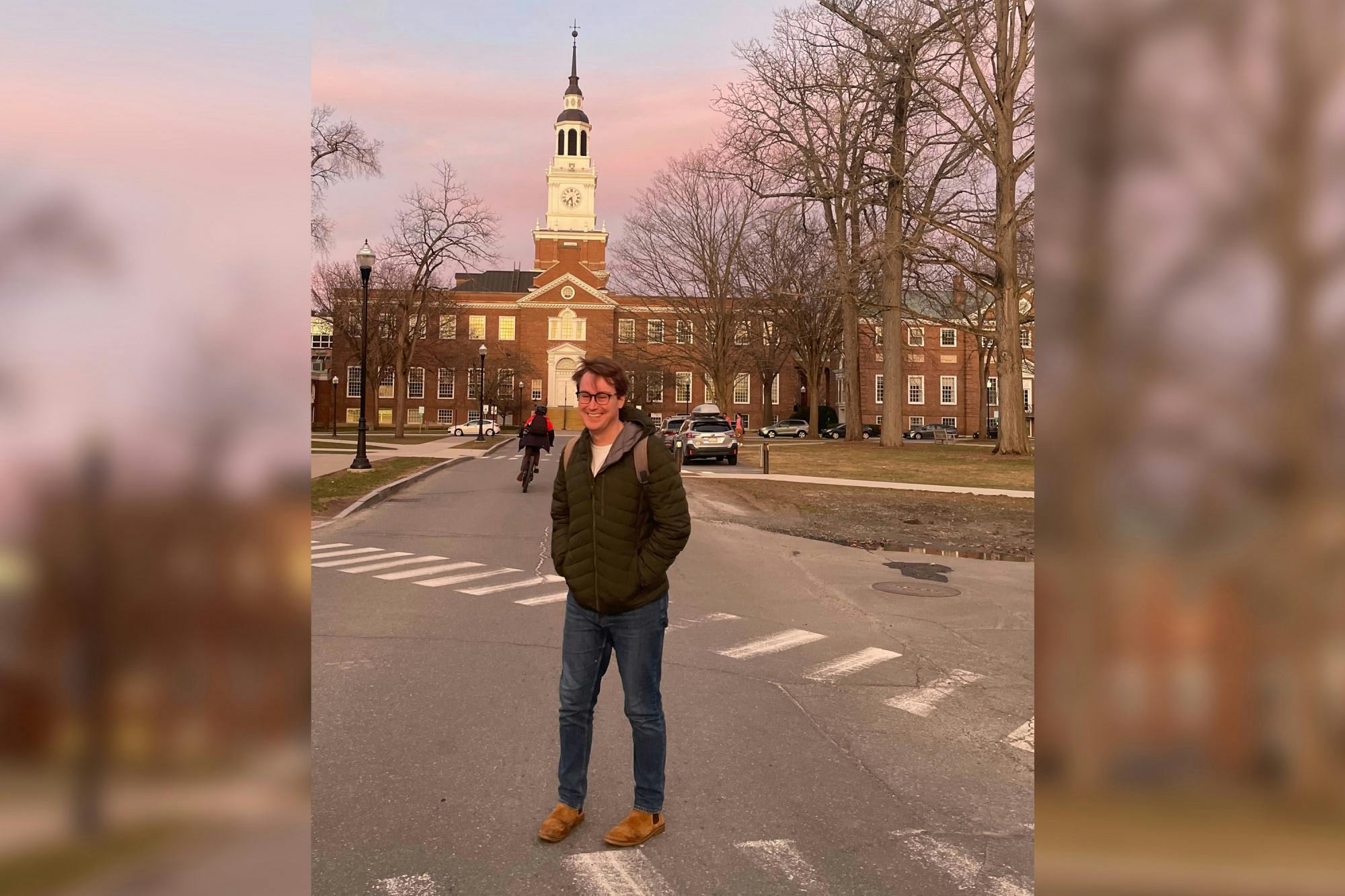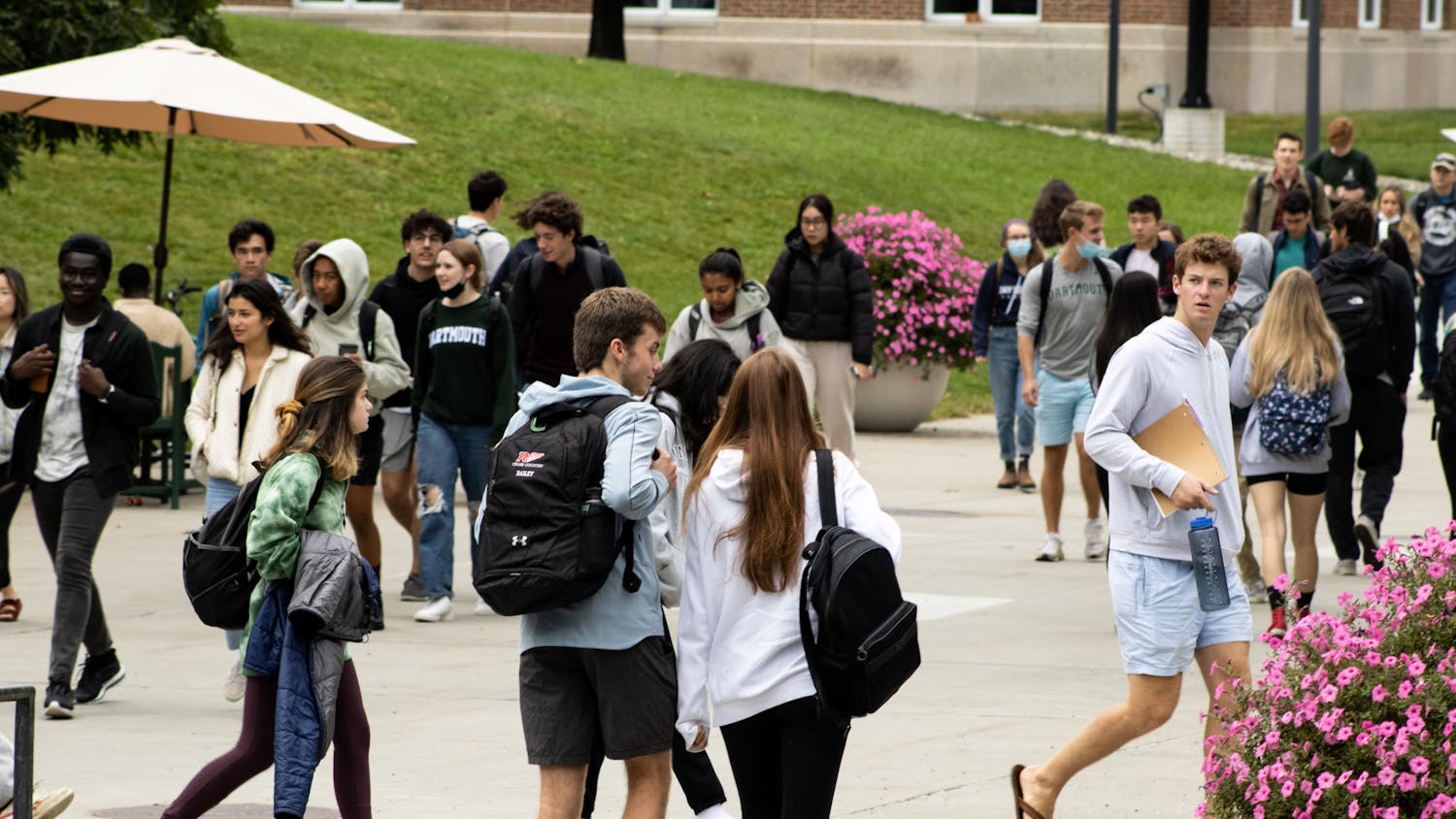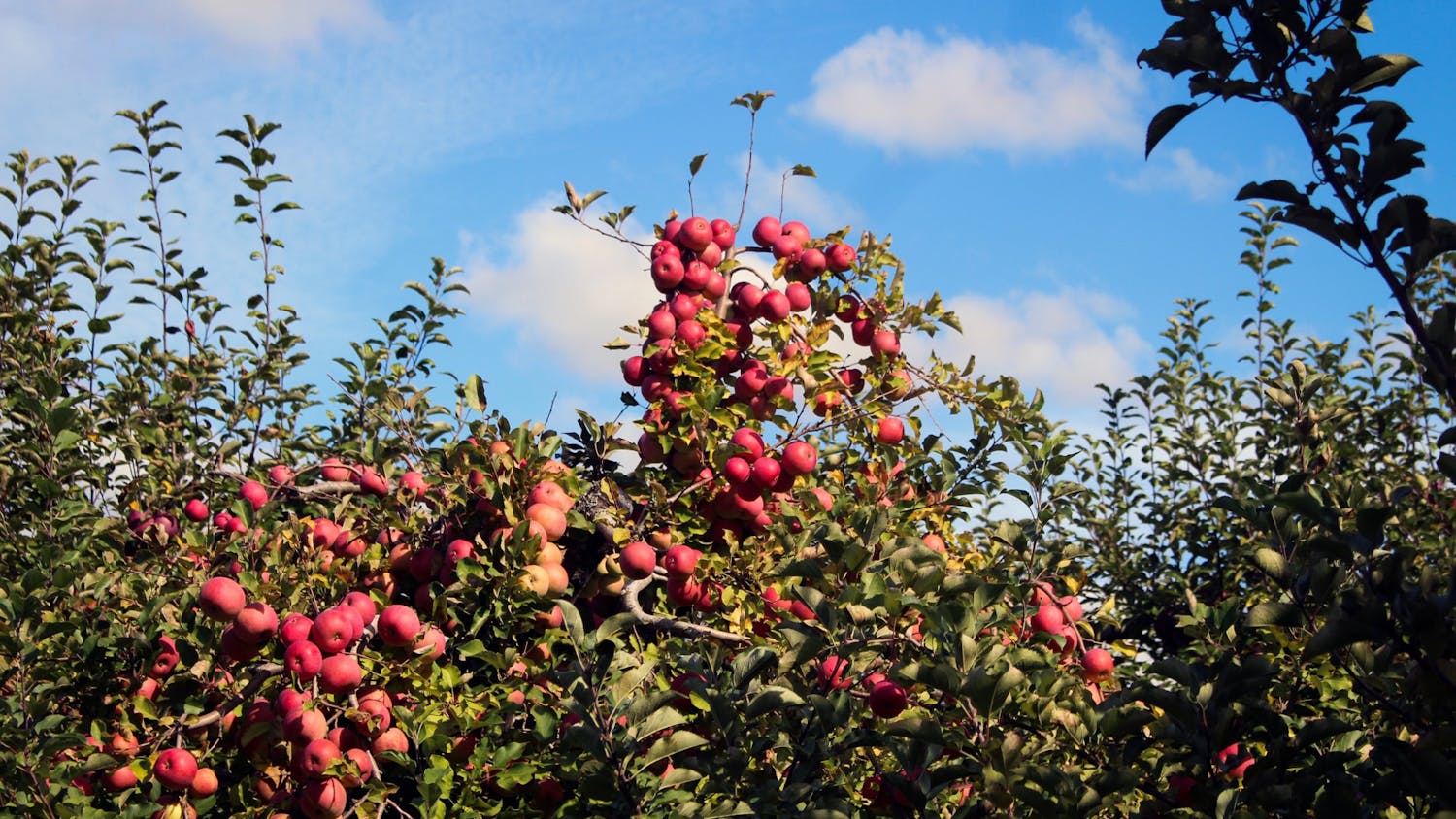More than two years later, I still think about former Dean of the College Kathryn Lively’s email from January 2021. She wrote, the day after the January 6 insurrection and during an ongoing pandemic:
“Despite everything that is happening in the world, no matter what tragedies or disappointments you may have faced, the academic term starts now.”
The memory of it has typically wandered into my head about once every other week since that January, but I think of it increasingly now that my days left as an undergraduate in Hanover are fewer than I have had academic terms. As finitely as 21W started for Dean Lively, 23S — my last term — even more so decidedly ends in 11 days.
I’ve had to say goodbye to Dartmouth a lot during my four years here. It has averaged out to one goodbye a year. I first said goodbye at the end of my freshman winter, when COVID sent me home for a supposed five-week half-remote term which never materialized. The second time happened when I left Hanover to study abroad in London for my junior fall after sophomore summer presented my first normal academic term in more than a year. The third time occurred after my junior spring. Having spent two terms on campus after coming back from London, I felt like I could finally be comfortable leaving Dartmouth. Based on my experience abroad, I felt secure in the knowledge that escaping the Dartmouth bubble can be liberating. Of course, I did come back, and now the fourth time — the final time — beckons me to say my farewells.
Perhaps because of the joy I’ve felt this term — in the spirit of determining one’s proverbial “best term ever,” 23S is certainly up there — I’ve yet to confront the sadness I know I'll feel when I leave Dartmouth. However, sometimes the argument that my many goodbyes have adequately prepared me for my graduation falters. In these moments, I focus on the many singular, happy moments that bind me to Hanover. These memories are, in turn, inextricably bound to the people I have found here:
The a capella shows of singers dressed in flair; the weekend tennis matches; the 1:15 a.m. water pong game to preserve a friend’s perfect term; an intimate formal at Base Camp Cafe; trivia on Thursdays or a plate of loaded fries shared three ways on Saturdays at Dunks; each term’s new Sunday night HBO show; the endless and endlessly impressive thesis presentations; or climbing out of a mud pit definitely, totally sober in the backyard of a nationally dry fraternity.
The friends I have met at Dartmouth have come to define my life so much that I struggle to imagine what it will be like without them once Dartmouth has ended for us. As much as the sadness about graduating is matched with excitement about what comes next, I tell myself to avoid fully thinking about what this life will be like because too many people I’ve experienced Dartmouth with won’t be right there. Whether it’s because they live across the hall from my room or sit across the table from me over dinner, they’ve always been there.
Almost every meal I ate during my freshman year was at a light-side booth in Foco: during 2s in the fall, during 12s in the winter — and guess what happened during 20S. It was over grilled cheeses and whipped butter, lemongrass chicken and double dessert runs that I met my favorite people and made them into friends. Different post-pandemic restriction terms came and went, but the meals stayed the same and new friends would come to the table. Even though meals further into my Dartmouth career would more frequently happen at Collis or Novack, I would still try to see how many people you can cram around a table clearly meant for only four people.
All of these memories reinforce the lesson that Dartmouth has taught me about itself: the people define the place. I’m not sure how frequently Mirror articles or TTLGs contain a thesis, but this reflection would be mine. I wanted to center my writing around this idea because it’s been in the absence of these relationships that I’ve had my worst experiences at Dartmouth. In truth, I find it hard to rank the middle eight of my academic terms because they’ve been (more than) good enough. The only definitively bad term I’ve had at Dartmouth was 20F: my sophomore fall, which is universally called “COVID fall.”
In theory, I was privileged to be able to work as an undergraduate advisor in Topliff after getting off the waitlist so I could spend time on campus after spending six months away from it. In reality, I ate every lunch and almost every dinner alone at my desk in silence. It was the term when, devoid of knowing anyone on campus, bar the other students on my UGA staff, writing a six-page memo on the Iraq surge brought me not just to my knees, but also what I now consider to be the nearest I’ve come to a breakdown.
Even when my parents visited me that term, coincidentally three days before the memo was due, I felt that I couldn’t tell them what I was experiencing. I couldn’t tell them that for weeks I would feel so choked by stress at night that I would turn off the big light in my room and lie in my twin bed and try to swallow the dread away. I constantly reminded myself that I knew that I should be so lucky to be in Hanover and so glad that I got to attend a school that I so loved. It was one thing to schedule a group Zoom with friends, play a game, and catch up virtually — but no friend from my fondest early memories of Dartmouth was actually there.
And so when my parents drove away in the evening, I waved back from the curb in my mask as a stone rolled into my throat. I walked back to my room feeling hot despite the October chill, sat in the middle of the carpet in my too-big single room as I sorted through their care package, and then cried surrounded on all sides by Trader Joe’s snacks and winter sweaters from home. I ate my plastic-box dinner alone listening to voices from some Netflix show and went to bed.
When I graduate, I will be fine. I will not collapse in a room full of nice things despairing over homework or job-equivalent deliverables. I can rationalize that Dartmouth under COVID was not what Dartmouth is actually like — nor what anyone’s life is normally like — and thus that absence of friends was an abnormality.
I also know that my time spent away from Dartmouth has contributed to some of the most transformative periods of my life: Too often have I forced those around me to listen to some kind of spiel in which I try to describe my FSP in London without the language of “abroad changed me.”
Of all of the lessons that Dartmouth teaches, one of the most important I’ve learned is how to grow up — not in the sense of suddenly needing to act and be more mature, but rather how to think of your life as an adult. The D-Plan is merciless. Even after COVID, there were stretches of time when I would spend seven months without seeing some of my closest friends or spend a measly 10 weeks with them in a year. The terror of life after graduation is the D-Plan with no return after your off-term.
So, after June, I will call my friends-turned-alumni on their birthdays and on many days in between; we’ll fly or train to each other’s cities for the weekend or drive to a diner halfway between our houses over Thanksgiving to once again grab a meal. It’ll have to do, and I know that it will work. If the thought of this future feels too bleak, then the comfort I take away from it is that all of the happy moments at the College, and the rare dark ones in between, were all worth it.
Dartmouth, I love you. You have introduced me to the best people I think I will ever meet in my life. Thank you for giving me something that will be so hard to say goodbye to.
What I will offer you is a simple request: Please never forget that you are more than just a school. The reason why Dean Lively’s email has stuck with me more than two years later is that it boiled Dartmouth down to just the education it offers. To assist Lively when she attempted to answer the question, “What’s the point of all this?” in that infamous email, I assure you that “the point” of Dartmouth is to do so much more than just learn.
And to the readers still with me, and specifically to the community members with time still left to spend in Hanover, I offer the advice I’m sure you have all already heard:
Try to enjoy every moment of your time at Dartmouth, especially the people who eat up the meals and the hours with you. The days go by fast; rarely ever do they flow as slowly as maple syrup.
Thomas Brown is a former managing editor of The Dartmouth and a member of the Class of 2023.




